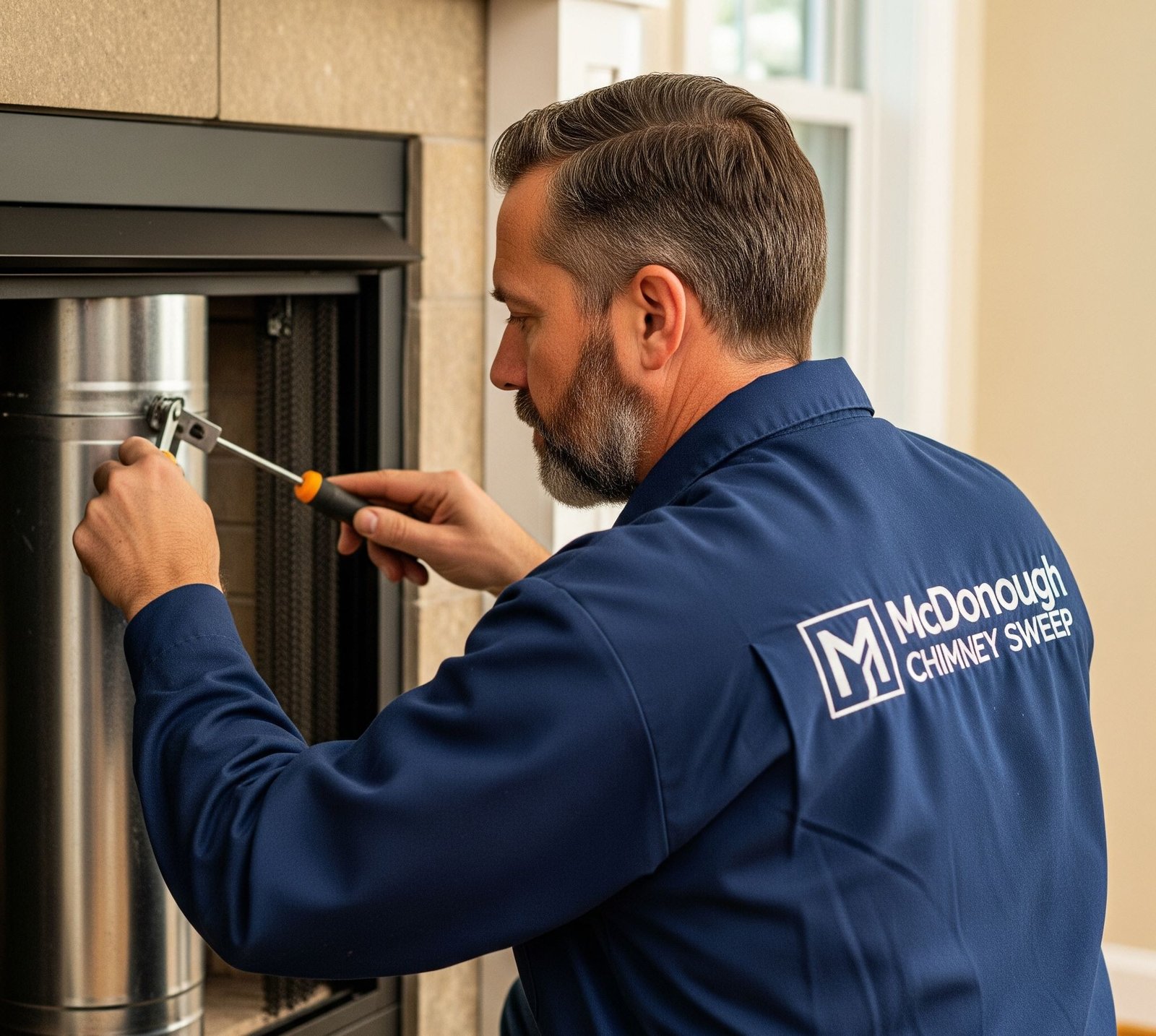If you call McDonough, Georgia home, you know how much a warm fire can mean on those chilly winter nights or during a cozy family gathering. But behind every safe, crackling fireplace is a chimney liner quietly working to protect your house from stray sparks, smoke, and all sorts of unwanted surprises. Taking care of this unsung hero might not be the first thing on your to-do list, but a bit of attention now can save you a load of trouble down the road. Let’s walk through some straightforward steps to keep your chimney liner in tip-top shape no matter what the Georgia weather brings.
Knowing Your Chimney Liner: The Basics Every Homeowner Should Understand
Picture your chimney liner as the armor inside your chimney. It’s there to shield your house from the intense heat and nasty chemicals that travel up with the smoke. In McDonough, where we see everything from humid summers to brisk winters, your chimney faces a lot. Liners can be made of metal, clay, or even special cement, and each type asks for its own kind of care.
If you’re not sure what kind you have, take a peek at any paperwork from when your chimney was installed or last serviced. Or, you can ask a local sweep to take a look. Knowing what you’re working with is the first step to giving your liner the attention it deserves.
Regular Check-Ups: Your Chimney’s Annual “Physical”
Just like you’d go to the doctor for a yearly checkup, your chimney liner needs someone to check under the hood at least once a year. In McDonough, pollen, humidity, and even critters can find their way into your chimney during the off-season, so spring or early fall is a great time to schedule an inspection.
During a professional check, a sweep will look for cracks, rust, buildup, or anything else that might spell trouble. Don’t skip this step! Even a tiny crack can let heat or smoke sneak into the walls of your house, causing things to get dangerous in a hurry.
| Season | Maintenance Step | Why It Matters |
|---|---|---|
| Spring | Schedule a chimney liner inspection | Catch winter damage early, before summer storms roll in |
| Summer | Check for animal nests and remove debris | Birds and squirrels love quiet chimneys in the off-season |
| Fall | Clean out soot and creosote buildup | Prepares your liner for safe, efficient use in winter |
| Winter | Watch for unusual smoke or odors | Signals a liner issue that needs quick attention |
Cleaning 101: Keeping That Liner in Prime Condition
Nobody loves the idea of chimney cleaning, but it’s one of those jobs that pays off in peace of mind. Over time, burning wood or even gas forms a sticky, black residue called creosote on your liner. Left alone, this stuff can catch fire—definitely not what you want!
If you use your fireplace a lot through the winter, think about a professional cleaning every year. If you only light the fire once in a blue moon, you might stretch it to every couple of years. In between, you can do a basic check with a flashlight; if you see more than a thin dusting of soot, it’s probably time to bring in the pros.
Local Challenges: McDonough’s Weather and Wildlife
Living in McDonough means your chimney faces a few special problems. The humidity here can cause metal liners to rust or clay ones to weaken. Summer thunderstorms sometimes send water down the chimney, and in our neck of the woods, birds and squirrels might try to set up a home in your flue.
To fight back, make sure your chimney cap is secure and in good shape. This little hat keeps most rain and animals out, but caps can slip or get damaged in bad weather. It’s a quick fix that makes a huge difference in keeping your liner safe.
“A well-kept chimney liner is like a warm handshake from your home—quiet, reliable, and always looking out for you.”
Small Habits, Big Results: Everyday Tips for a Healthier Chimney Liner
Little actions can go a long way. Burn only seasoned, dry wood to cut down on sticky buildup. Don’t toss trash, glossy paper, or painted wood into your fire—they’re hard on your liner and can send harmful chemicals up the flue. And when you’re done with a fire, make sure the damper is closed once everything’s cooled off; this keeps humid air from sneaking in and causing rust or mildew.
If you notice smoky smells, odd noises, or see bits of debris in your fireplace, don’t ignore them. These are your liner’s way of asking for attention!
Conclusion: Stay Cozy and Safe All Year Long
A little care goes a long way in keeping your fireplace—and your home—safe and comfortable. With seasonal checkups, regular cleaning, and a few smart habits, your chimney liner will be ready for anything McDonough’s weather throws at it. Take the time to check in on your liner now and then, and you’ll enjoy those crackling fires with total peace of mind. After all, nothing says home like the warm glow of a safe and well-loved chimney liner.
Read more : Chimney Sweep


